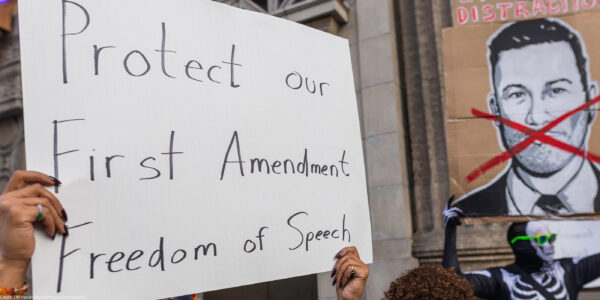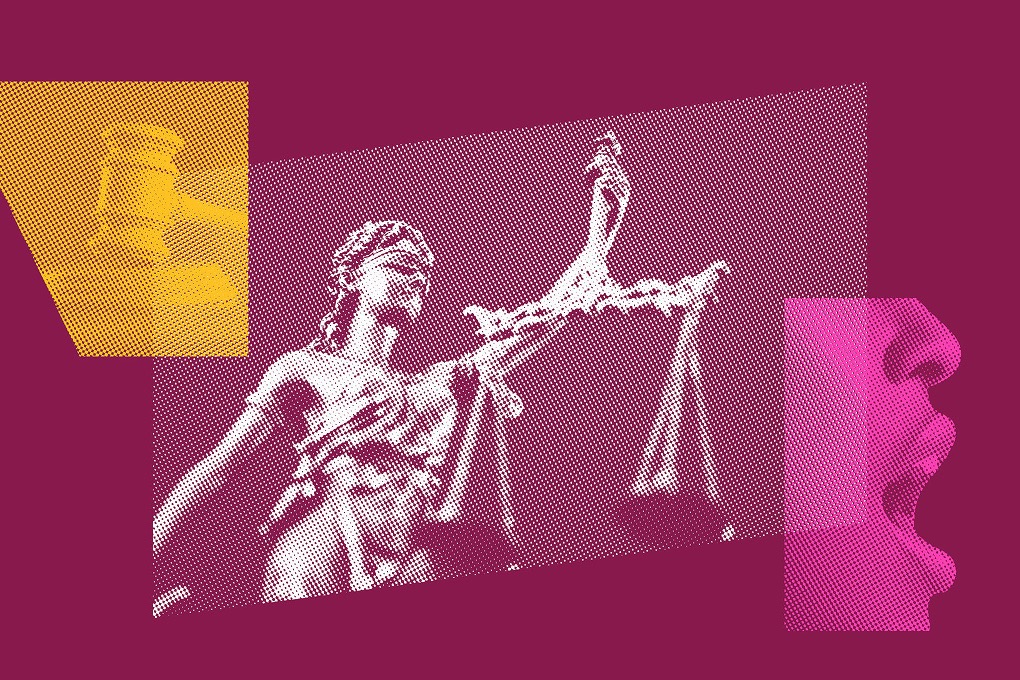ACLU, ACLU of South Carolina Challenges Prison Policy that Seeks to Silence the Incarcerated
COLUMBIA – The American Civil Liberties Union and the ACLU of South Carolina filed a federal lawsuit today challenging the South Carolina Department of Corrections’ (SCDC) total ban on news media interviews with incarcerated people on First Amendment grounds. In addition to filing a complaint, the ACLU of South Carolina is seeking emergency relief that will allow the organization the right to interview incarcerated clients and publish their speech.
“Incarcerated peoples’ speech has long played a critical role in our public discourse,” said Allen Chaney, legal director for the ACLU of South Carolina. “If applied historically, SCDC’s rule would suppress publication of Martin Luther King Jr.’s ‘Letter from Birmingham Jail,’ Nelson Mandela’s autobiography, and four books of the New Testament. Today, it operates to insulate SCDC from real public accountability and to suppress the public’s knowledge about the violence committed against prisoners — wrongs that are committed in the public’s own name.”
South Carolina’s prison media-access policy is among the most restrictive of any state in the U.S. Unique among prison systems nationwide, SCDC takes the position that incarcerated people “lose the privilege of speaking to the news media when they enter SCDC.” In addition to infringing on the ACLU of South Carolina’s First Amendment right to receive and publish the speech of incarcerated people, this blanket policy impoverishes public understanding of vital matters including prison conditions, treatment of LGBTQ individuals and other vulnerable prisoners, and the propriety of capital punishment.
“The SCDC’s categorical rule that incarcerated people can never talk to the press or anyone else for the purpose of publication is blatantly unconstitutional,” said Emerson Sykes, senior staff attorney with the ACLU Speech, Privacy, and Technology Project. “This policy is so broad that no court has upheld anything similar. We urge the court to block this law, and defend our right to free speech as soon as possible.”
As highlighted last year in news coverage of the Alex Murdaugh murder trial, incarcerated people and their legal teams can face punishment for publicizing written or recorded statements by people held in SCDC. While Murdaugh’s case has garnered national attention, the ACLU of South Carolina seeks to address the routine violations of all incarcerated people’s rights, including in lower-profile cases.
As one example, the ACLU of South Carolina seeks to publish an interview with Marion Bowman Jr., who resides on South Carolina’s death row in Columbia. As Mr. Bowman prepares to petition the governor to commute his sentence to life imprisonment, we want to share Mr. Bowman’s story in his own words. To quote the complaint:
A story about Marion Bowman — that is, a telling of his case and his life behind bars — is not functionally equivalent to a story by Marion Bowman … In the context of prison advocacy, empathy is hard earned. The sound of another person’s voice can break the demonizing and otherizing constructs that the public has about “prisoners,” and can reveal the multidimensional humanity possessed by those behind bars.
"Our state government spends untold millions of dollars a year to keep 33 men on death row, often for decades,” said the Rev. Hillary Taylor, executive director of South Carolinians for Alternatives to the Death Penalty. “The citizens of South Carolina deserve to know who they are keeping alive with their tax dollars. It's time for SCDC to stop acting like it's a 'black box' of state secrets and allow media access to South Carolina's death row. What could SCDC possibly be afraid of revealing?"
There is wide variation in media access policies among the states, but South Carolina’s policy is uniquely draconian. Many states include some restrictions on speech and press access for prisoners, but not a total prohibition.


